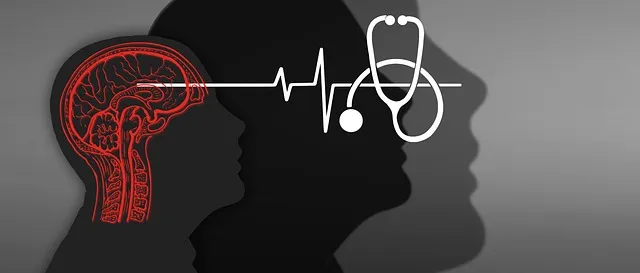Kaiser Permanente's mental health coverage in Wheat Ridge employs risk assessment as a cornerstone of harm minimization strategies, prioritizing proactive measures for client safety, especially among individuals with mental health conditions. Through comprehensive evaluations of environmental risks and behavioral patterns, healthcare professionals design tailored interventions such as Social Skills Training, Inner Strength Development, and Confidence Boosting programs to build resilience. This holistic approach integrates regular assessments, trigger identification, and safety protocol establishment, complementing Resilience Building techniques like mindfulness practices or cognitive-behavioral therapy (CBT) for improved mental well-being across the community.
Risk assessment and harm minimization planning are essential components of ensuring public safety and access to care. This article explores these critical strategies, focusing on their application in the context of mental health services provided by Kaiser Permanente in Wheat Ridge. We begin by establishing a solid understanding of risk assessment as a foundation for effective harm minimization. Subsequently, we delve into how Kaiser Permanente’s mental health coverage enhances accessibility, highlighting practical strategies for implementing comprehensive harm minimization plans.
- Understanding Risk Assessment: A Foundation for Harm Minimization
- Kaiser Permanente Mental Health Coverage: Unlocking Access to Care in Wheat Ridge
- Practical Strategies for Effective Harm Minimization Planning
Understanding Risk Assessment: A Foundation for Harm Minimization

Understanding Risk assessment forms the bedrock upon which harm minimization planning thrives, especially within healthcare settings like Kaiser Permanente mental health coverage in Wheat Ridge. It involves a systematic evaluation of potential hazards and their likelihood to cause harm. This process prioritizes proactive measures to safeguard individuals’ well-being, particularly those with mental health conditions. By meticulously analyzing various factors, from environmental risks to behavioral patterns, healthcare professionals can develop comprehensive strategies tailored to mitigate potential dangers.
This foundational step enables the implementation of effective interventions, such as Social Skills Training, Inner Strength Development, and Confidence Boosting programs, which play a pivotal role in harm minimization. These initiatives not only empower individuals but also equip them with tools to navigate challenges, fostering resilience and promoting positive outcomes.
Kaiser Permanente Mental Health Coverage: Unlocking Access to Care in Wheat Ridge

In Wheat Ridge, Kaiser Permanente’s comprehensive mental health coverage stands as a beacon of hope and accessibility for individuals seeking support for their psychological well-being. This healthcare provider offers a wide array of services tailored to meet diverse mental health needs, ensuring that residents have access to professional care without the financial burden often associated with traditional therapy. The program is designed to be inclusive, catering to various demographics, and promoting early intervention as a crucial strategy in mental health management.
Kaiser Permanente’s approach emphasizes not just treating symptoms but also fostering self-awareness exercises and self-esteem improvement initiatives. Their risk assessment for mental health professionals plays a pivotal role in identifying potential issues and implementing harm minimization strategies. Through regular evaluations and patient-centric care, they strive to ensure that individuals in Wheat Ridge receive the highest quality of mental health services, ultimately improving overall community well-being.
Practical Strategies for Effective Harm Minimization Planning

Effective harm minimization planning requires a multifaceted approach that integrates both risk assessment and proactive strategies. At Kaiser Permanente mental health coverage in Wheat Ridge, professionals are encouraged to adopt a holistic perspective, considering not just immediate dangers but also fostering resilience among clients. This involves tailored interventions aimed at mitigating risks while empowering individuals with coping mechanisms for better mental well-being.
One practical strategy is implementing comprehensive risk management planning. This includes regular assessments of client history and current circumstances, identifying potential triggers, and establishing safety protocols. Additionally, promoting Resilience Building techniques can significantly enhance an individual’s ability to navigate challenging situations, thereby reducing the likelihood of harmful behaviors. For instance, teaching mindfulness practices or cognitive-behavioral therapy (CBT) skills can provide clients with effective Anxiety Relief strategies, strengthening their mental health infrastructure.
Risk assessment and harm minimization planning are essential components of providing comprehensive care, especially within healthcare systems like Kaiser Permanente in Wheat Ridge. By understanding and evaluating potential risks, mental health services can be enhanced and access to care improved. The strategies outlined in this article offer practical guidance for professionals aiming to implement effective harm minimization plans, ensuring the well-being and safety of patients with mental health concerns.






